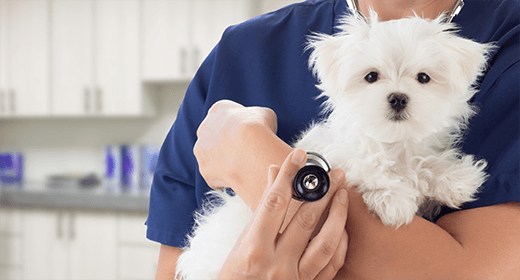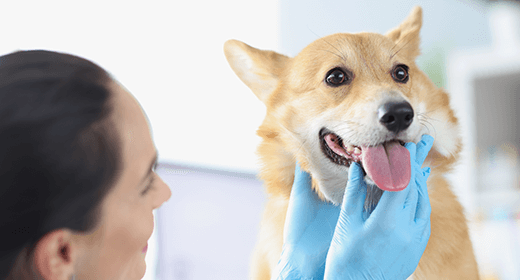

For most pet parents, the expense, time, and expertise involved in breeding dogs responsibly is beyond their reach. Here are some advantages to having your puppy spayed or neutered:
When to Spay or Neuter
Dogs should be spayed or neutered by the time they are 6 months old to avoid many dog health issues. Both operations are performed under anesthesia and may require an overnight stay at the veterinarian's office. Recovery time is quick, with most dogs resuming normal activity in a few days. Spaying (for females) consists of an ovario-hysterectomy.
Neutering involves the removal of the testicles. When you bring your puppy to the veterinarian's office for his first thorough examination, have the doctor explain the operation in detail and set up a time to have the procedure done.


Oral care is a key component of your pet’s overall health: A smart regimen can help prevent the development of serious conditions. Keeping your pet’s teeth clean and bacteria-free results in more than just healthy teeth and fresh breath. With a little know-how and effort, you can protect your pet for a lifetime of companionship.
Tartar and gingivitis are the most common problems seen by veterinarians. The majority of dogs will develop these problems. Unchecked, these can lead to periodontitis and serious health concerns for your pet, up to and including, tooth loss and serious illness. But you can take action to control this and promote good oral health by incorporating the 3Ds: Daily Brushing, Dentistry. and Diet.
Daily brushing of your pet’s teeth will remove plaque and slow the development of tartar. When first beginning to brush, be gradual and make it a pleasant experience. Start by using your finger. Later, introduce a toothbrush. Be sure to praise and reassure your pet while brushing. Also, reward your pet afterward with play or a walk.
Talk with your veterinarian about annual or semiannual teeth cleaning—a dental prophylaxis or prophy for short. Teeth cleaning, performed by your veterinarian, is the only way to remove tartar.
Diet is important to good oral health. The mechanical, brushing action of dry, crunchy kibbles helps remove plaque and works to scrub teeth clean. Some diets also might include ingredients such as hexametaphosphate (HMP) that can help block tartar formation. Diet, daily brushing, and dentistry helps break the plaque-to- tartar cycle and optimize oral health.